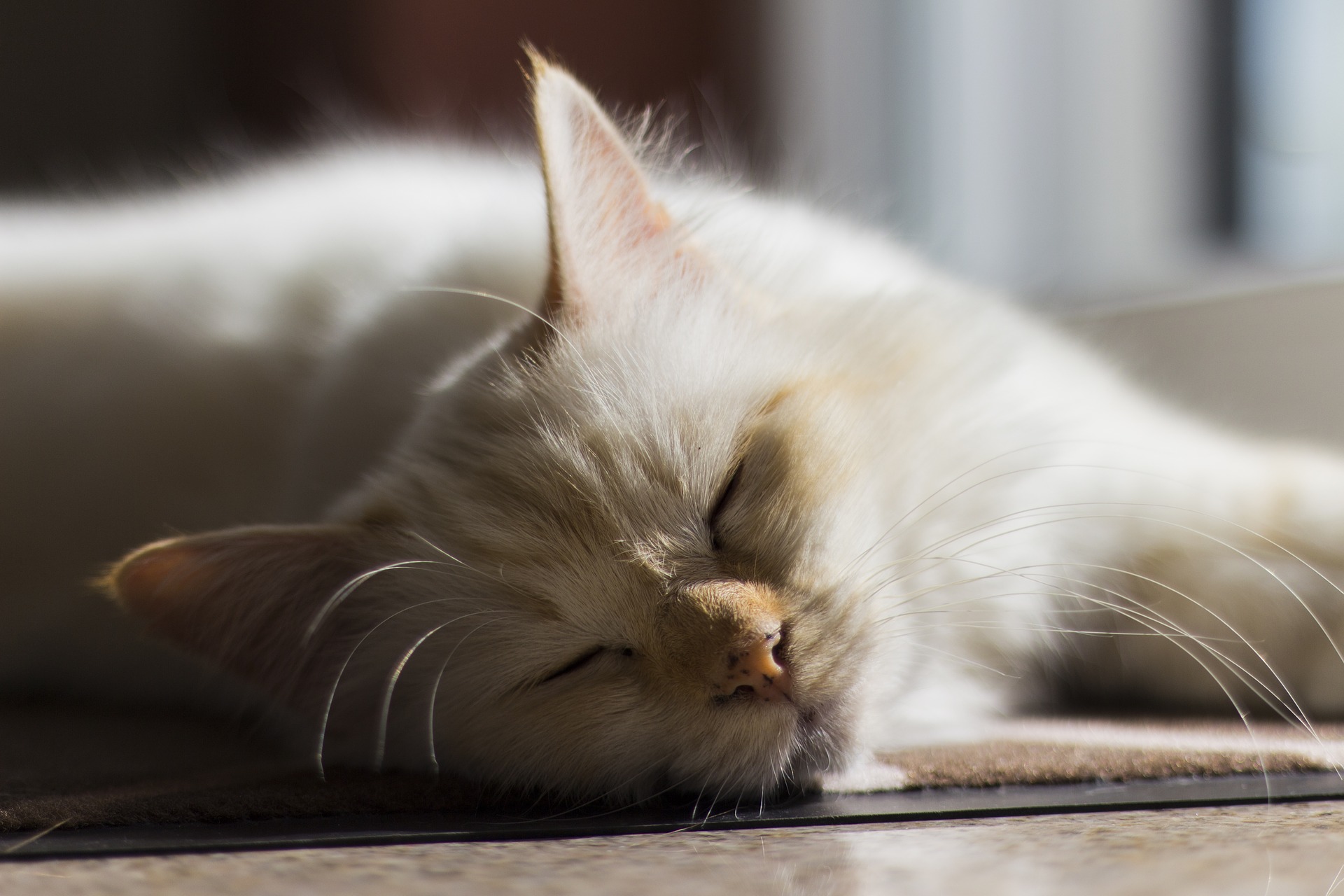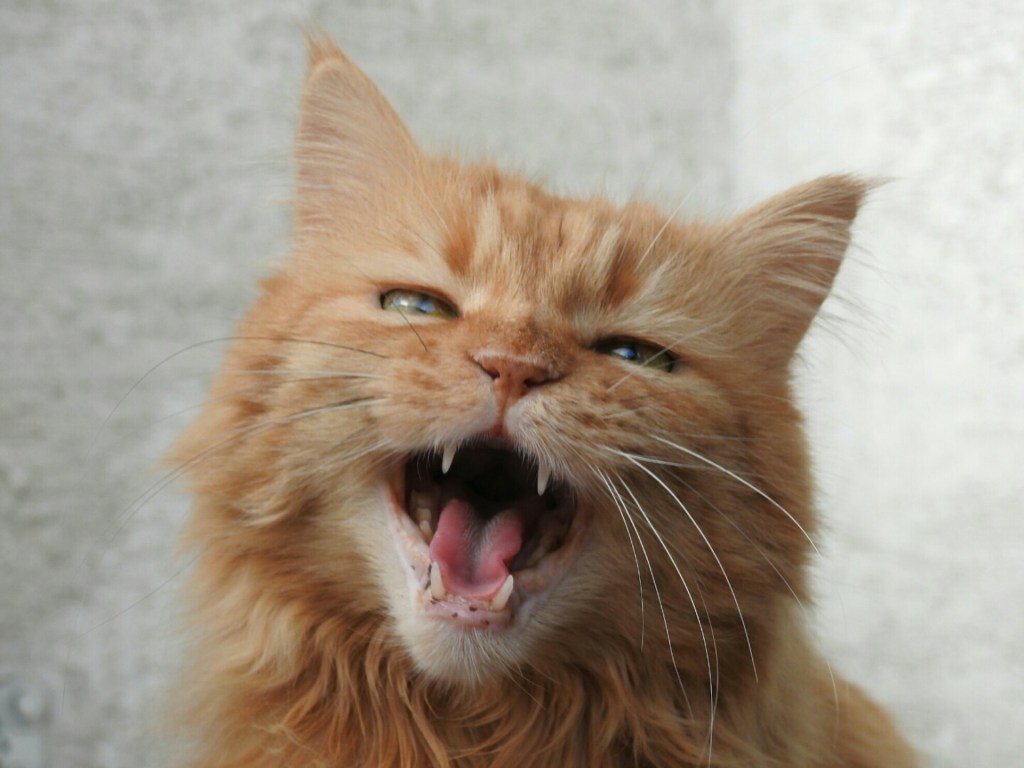If you often watch your cat while he sleeps, you might notice that he sometimes twitches his whiskers, flicks his paws, and might even start to kick and move without seeming to wake up. In some instances, your cat might make small noises or even wake up meowing. While this can be surprising to see initially, there are some natural causes for this behavior. But, there are also situations where unusual meowing could indicate that something is wrong and that your cat needs vet help. If you’re wondering, “Why does my cat wake up meowing? Can he have nightmares?” there are several clues you can look for to better understand what’s going on and to help identify a problem. While we’re still working to understand just what happens when cats sleep, scientists have a pretty good idea of what’s behind this behavior.

Why does my cat wake up in the middle of the night crying?
If your cat meows when she wakes up, she may have been in deep sleep and might have even been having a nightmare. Veterinary neurologist Adrian Morrison tells Purina that if a cat is in REM sleep, she might move her head like she’s watching something. Research indicates that cats might dream about things that have recently happened, and they may even have nightmares, though we still know little about the extent of those nightmares.
As your cat dreams, she might twitch, stretch, snore, and make squeaking noises. These kinds of reactions are usually caused by signals in your cat’s brain that occur during the dream. If your cat has recently had a frightening experience, like being chased by a dog, she might be dreaming about that, and she might wake up startled.
Why does my cat yell at me when waking up?
Cats make noises at night for all sorts of reasons. According to Catster, your cat might meow or yell at you when he’s bored, hungry, or feeling uncomfortable in a new environment. Cats who are lonely may also seek you out at night and try to wake you up.
Sometimes, medical conditions can prompt cats to meow and vocalize at night. A cat who has recently moved to a new home might whine because he’s anxious. Meowing out of confusion can occur in cats who are experiencing dementia.

Should I ignore my cat’s meowing at night?
Since there are many potential causes of your cat’s meowing at night, it’s important to understand what’s causing the behavior before you decide what to do about it. It’s always a good idea to start with a trip to your veterinarian to rule out illnesses or conditions like dementia.
Once you know your cat is healthy, you can start focusing on the other causes of meowing at night. According to Catster, you can offer your cat some stability and confidence by sticking to a regular schedule. Feed your cat at the same time every day, and give him plenty of playtime and attention to help him feel safe in his home.
If your cat is meowing because he has extra energy at night, you’ll need to find ways to help him get rid of that energy during the day. Try to schedule multiple play sessions, and try out different toys to see what your cat likes best. Be sure to give your cat an extra-long play session right before bed, so he’s tired and ready to sleep.
If your cat is meowing at night because he’s hungry, you may need to restructure how you’re feeding him. Try feeding him multiple small meals throughout the day, ending with a meal right before bedtime. You can also try using an automatic feeder to continue giving your cat food throughout the night.
If your cat wakes up meowing, chances are she’s just been dreaming, although there could be other reasons too. Look for changes in your cat’s behavior, like increased sleep and reduced appetite, which can indicate that there might be a physical cause to her behavior. Be sure to get your cat to the vet if you suspect she might have a health issue. You’ll also need to consider whether your cat’s meowing at night is caused by other issues, like hunger, loneliness, stress, or just extra energy. It can take a while to get your cat used to your nighttime schedule, so try to get a sense of his sleeping habits and pay attention to what’s going on on those nights when she does wake up meowing. You might spot clues that can help you to identify whether she’s dreaming or if it’s something else.


